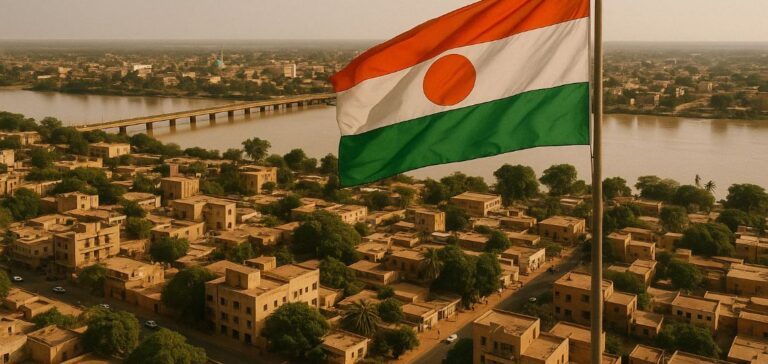Nigerian Foreign Minister Yusuf Maitama Tuggar paid an official visit to Niamey on April 16, 2025, in a tense diplomatic climate. This visit followed a year of heightened tensions between Niger and its Nigerian neighbour, exacerbated by the coup d’état in July 2023 in Niger. It marked the second visit by a senior Nigerian official since the coup, following the visit of Nigerian Chief of Army Staff, Christopher Musa, in August 2024.
Economic Cooperation and Infrastructure Projects
Discussions between Yusuf Maitama Tuggar and his Nigerien counterpart, Yaou Sangaré Bakary, mainly focused on economic cooperation and cross-border security challenges. A key project discussed during the talks was the railway connecting Nigeria and Niger. The project is expected to link the Nigerian cities of Kano, Katsina, and Jibiya to Maradi in Niger, with commissioning planned for 2026. This project is part of a broader programme aimed at strengthening trade between the two countries.
The two ministers also addressed the construction of the Trans-Saharan Highway and the Trans-Saharan gas pipeline. These infrastructures are seen as crucial for boosting economic relations between the two nations and facilitating trade with Europe and the rest of Africa. The issue of customs duties and taxation was also discussed with the aim of streamlining cross-border trade.
Security Issues and Regional Cooperation
Security concerns also played a central role in the discussions. Both ministers expressed their concerns about the terrorist threat along their shared borders. They agreed that this threat constitutes a major obstacle to the implementation of joint development projects. The insecurity in the Sahel region, exacerbated by jihadist groups, has led to intensified security cooperation measures.
Political tensions between the two countries also influenced the discussions. Nigerian Minister Mohammed Idris reiterated calls for the release of former Nigerien President Mohamed Bazoum, who has been held by the military junta since his overthrow in 2023. Following its withdrawal from the Economic Community of West African States (ECOWAS), Niger has strengthened its ties with Burkina Faso and Mali, forming the Sahel States Alliance (AES) and moving closer to Russia.






















